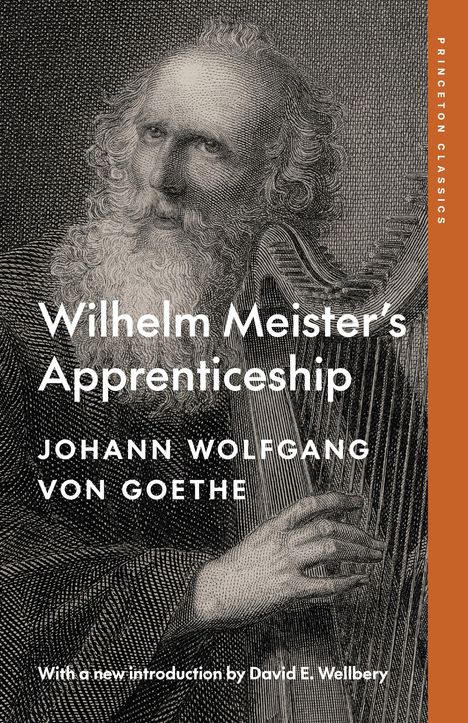Johann Wolfgang von Goethe: Wilhelm Meister's Apprenticeship, Kartoniert / Broschiert
Wilhelm Meister's Apprenticeship
(soweit verfügbar beim Lieferanten)
- Herausgeber:
- Eric A Blackall, Victor Lange
- Übersetzung:
- Eric A Blackall, Victor Lange
- Verlag:
- Princeton University Press, 06/2024
- Einband:
- Kartoniert / Broschiert
- Sprache:
- Englisch
- ISBN-13:
- 9780691259147
- Artikelnummer:
- 11633605
- Umfang:
- 416 Seiten
- Gewicht:
- 526 g
- Maße:
- 216 x 140 mm
- Stärke:
- 24 mm
- Erscheinungstermin:
- 18.6.2024
- Hinweis
-
Achtung: Artikel ist nicht in deutscher Sprache!
Weitere Ausgaben von Wilhelm Meister's Apprenticeship |
Preis |
|---|---|
| Buch, Kartoniert / Broschiert, Englisch | EUR 35,36* |
Klappentext
Wilhelm Meister's Apprenticeship (1795-1796), Goethe's second novel, is a foundational work in the history of the genre--perhaps the first Bildungsroman, a coming-of-age story focusing on the growth and self-realization of the main character. The story centers on Wilhelm, a young man living in the mid-1700s who strives to break free from the restrictive bourgeois world of his upbringing and seek fulfillment as an actor and playwright. Goethe's novel had a huge impact on the Romantics. Hegel, Schelling, Novalis, and Schopenhauer considered it one of the most important novels yet written. Schlegel famously called it one of the "three tendencies of the age," along with the French Revolution and the philosophy of Fichte. And Beethoven, Schubert, and Schumann set poems from the novel to music. It also had a major influence on nineteenth-century British writers, including Thomas Carlyle, who was its first English translator, and George Eliot. Drawn from Princeton's authoritative collected works of Goethe, and featuring a new introduction by David Wellbery, this is the definitive English version of a landmark of world literature.
Biografie (Johann Wolfgang von Goethe)
Johann W. von Goethe, geb. am 28.8.1749 in Frankfurt a.M., gest. am 22.3.1832 in Weimar. Jurastudium in Leipzig und Strassburg. Lebenslanges Wirken in Weimar. Reisen zum Rhein, nach der Schweiz, Italien und Böhmen. Frühe Erfolge mit den Sturm und Drang-Stücken 'Götz' und 'Werther', Gedichte (herrliche Liebeslyrik), Epen, Dramen ('Faust', 'Tasso', 'Iphigenie' u. v. a.), Autobiographien. Zeichner und Universalgelehrter: Botanik, Morphologie, Mineralogie, Optik. Theaterleiter und Staatsmann. Freundschaft und Korrespondenz mit den grössten Dichtern, Denkern und Forschern seiner Zeit (Schiller, Humboldt, Schelling . . .). Goethe prägte den Begriff Weltliteratur, und er ist der erste und bis zum heutigen Tag herausragendste Deutsche, der zu ihren Vertretern gehört.

